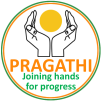STOP Kidney Disease Inititative
Prevention is the only cure—Part 3/3
Influence of Diet on Kidney Stones
Having discussed the influence of lifestyle modification on prevention of chronic kidney disease in previous columns extensively, I will now turn my attention to its effect on prevention of kidney stones. Almost five percent of adults in the US suffer from kidney stones, with more than half having multiple recurrences. Patients end up in emergency room experiencing agonizing pain and many undergo multiple procedures to remove them by lithotripsy or surgery.
Changing dietary patterns over last few decades have resulted in increased number of stone disease. Certain foods promote, while others inhibit their formation. More than two billion dollars are spent annually taking care of kidney stones. The vast majority of stones contain calcium or uric acid. They can cause urinary infections and kidney damage in the long run. Some extremely important lifestyle changes that can decrease stone formation include:
-
Adequate fluid intake of 2.5 to 3 liters daily; with an increase in hot weather and during activity. This should result in more than 2 liters of clear urine excretion daily. While water is the best fluid to drink, low salt citrus juices like lemonade, tomato juice and orange juice increase citrate content in the urine which inhibits stone formation. Specifically, grapefruit juice, sugar-sweetened colas and cranberry juice can be harmful because of increased calcium oxalate stones.
-
Decreasing salt intake to less than 6 grams per day or one teaspoon will help decrease stone formation. High salt intake causes more calcium excretion promoting stone formation.
-
Lowering animal protein intake to less than 1 gram/kg/day daily is recommended to prevent recurrence of stones. High animal protein intake, high in purines, leads to formation of stones.
-
Increase fruits and vegetables to at least five servings daily increases urine citrate, thereby decreasing stone formation. However, high oxalate foods such as spinach, rhubarb, nuts and strawberries promote recurrence of calcium oxalate stones.
-
Moderation in calcium intake of 1000 to 1200 mgs/day is recommended. Very low or excessive calcium and vitamin D supplements promote stone formation.
-
Prevention and reduction of obesity decreases the stone formation.
-
Reducing alcoholic beverages, including beer prevents uric acid stones.
-
Lowering vitamin C to < 1 gram daily and fructose intake is also helpful.
The National Kidney Month calls for implementation of public health measures to prevent kidney disease. A DASH style diet (http://dashdiet.org/) has larger content of pro-inhibitory substances that decrease the formation of kidney stones. It is high in fruits and vegetables that are low in sodium, high in alkali, potassium, magnesium and fiber. It includes a moderate amount of low fat dairy products; poultry, fish for animal protein; legumes and nuts for plant based protein and whole grains.
(As it will appear on Dayton Daily News, March 26, 2016)
Alok Agrawal, MD, FASN, FNKF


